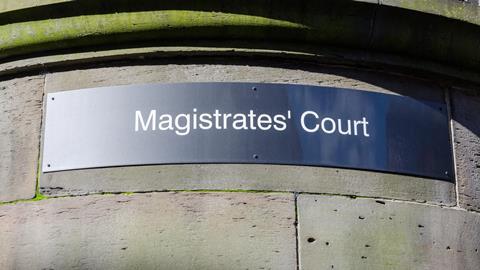A long service medal, formal tracking of magistrates’ volunteering hours, and stronger engagement between magistrates and senior leadership are some of the recommendations put forward by the Magistrates Association to improve the attractiveness of the role.
A report published today, Magistrates matter: a plan to ensure magistrates are valued, appreciated and recognised, provides seven recommendations based on members’ experiences.
The cost implications of the recommendations are ‘modest compared to the size of the justice budget, the costs of the current strain in the justice system and the value that magistrates give to the country through voluntary service’, the association’s national chair, Mark Beattie, states in the foreword.
The seven recommendations include establishing a ‘clear multi-year recruitment and retention strategy for the magistracy across all roles’, developing a ‘structured, accessible system’ to capture magistrates’ volunteering hours to ensure contributions are properly recorded, establishing a volunteer charter to codify magistrates’ rights, responsibilities and expectations and introducing an annual attitude survey.
Other recommendations include strengthening communication and consultation between magistrates, HMCTS, the Ministry of Justice and senior judicial leadership throughout ‘structured engagement opportunities’, introducing a long service medal which would be awarded to magistrates after 10 years of service and expanding local recognition events.
The report states: ‘Despite growing expectations, there is no comprehensive recruitment and retention strategy to support magistrates throughout their service effectively. This lack of strategy has led to inconsistent recruitment, retention challenges and a disregard for magistrates’ voluntary status. Without reform, inefficiencies and inadequate support will continue to undermine the magistracy’s sustainability.’
Read more
Beattie said the recommendations would make a ‘big difference in improving the attractiveness of the role and help recruit more new magistrates as well as retain existing magistrates who would otherwise feel they must step down’.
He added: ‘Magistrates are disregarded, neglected, undervalued and often out-of-pocket. The hidden costs of service outlined in our report are making it harder to recruit and retain magistrates, particularly from under represented groups, such as people from lower socio-economic backgrounds, those aged under 35, people with school-age children, or caring commitments to elderly and/or disabled relatives, and people in full-time employment.
‘This goes against maintaining a diverse magistracy, threatens to undo the good work of the government’s recruitment campaign to recruit thousands more magistrates, and undermines local justice. The magistracy has proved its resilience time and again. But at the same time, it is fragile. It is powered by goodwill, and that goodwill needs to be nurtured, not taken for granted.’
This article is now closed for comment.




























7 Readers' comments